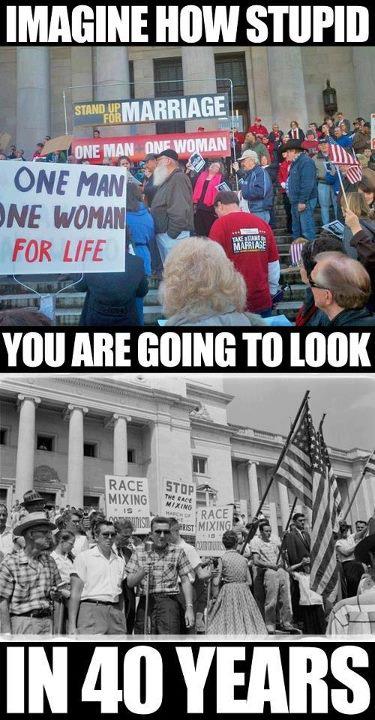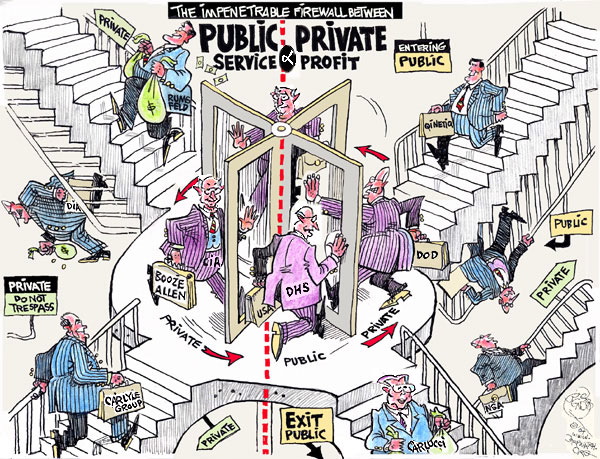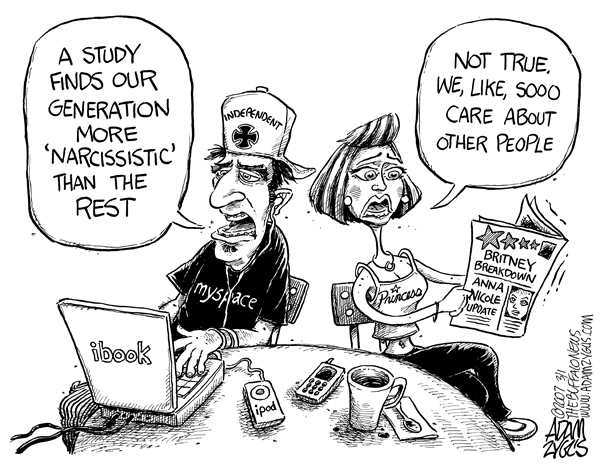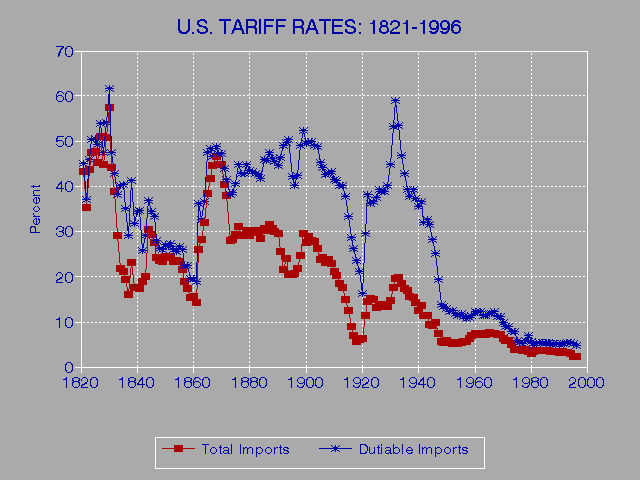"[T]here remains in others a strong bias towards the
old error, that without some sort of alliance or coalition between
Government & Religion neither can be duly supported... the danger
cannot be too carefully guarded against.
Every new & successful example therefore of a
perfect separation between ecclesiastical and civil matters, is of
importance... [R]eligion & Govt. will both exist in greater purity,
the less they are mixed together...
We are teaching the world the great truth that Govts.
do better without Kings & Nobles than with them. The merit will be
doubled by the other lesson that Religion flourishes in greater purity,
without then with the aid of Govt."
- James Madison, July 10, 1822, Letter to Edward Livingston
- James Madison, July 10, 1822, Letter to Edward Livingston
This post may be my most controversial yet, but I think my position is well known. Let's start, as it were, at the beginning.
The United State's was not founded as a Christian nation. That idea is utterly false and is not supported by any of the historical data. Yes, the colonies enjoyed far greater religious freedom than other parts of the empire, BUT it was by no means a strong hold for Christianity. Many people point to the Pilgrims emigration to Massachusetts as a sign of this "religious founding" but we too often forget one important fact: Massachusetts was not the first colony. Nor were the Pilgrims who came the only inhabitants of Massachusetts.
The first colony in the New World was Virginia. There, the idea that religion was any fort of factor in colonization is laughable. Colonists came to Virginia (and Roanoke before that) for one simple reason: Money. The almighty dollar (or pound sterling I suppose) was the god of that colony. The British sought to colonize North America in order to make a profit off its natural bounty. Like spices from Indonesia, tea from China, and silks from India- North America offered its own resources that could be exploited: Timber (which was harder to find in the United Kingdom), Fish, game, and, according to legend, gold. Once colonists were here, they learned about Potatoes, Tobacco, Maize, and other crops which could be sold for a profit back in the old Country. The slave trade from Africa developed in response to this craving for more goods. Money and manufactured goods went to Africa to purchase slaves, which were in turn taken to the Americas as cheap labor, which produced the raw materials and food stuffs, which were in turn taken to Europe for manufacturing and distribution. Notice, not once in that description did you hear about God.
Now, as we all know, the Puritans had fallen out of favor in England. Granted the opportunity, they made their way to the New World, far from the eyes of the King and the Anglican church. While they were the first, they were not the last. Jews, Quakers, Methodists, Baptists, and other religious groups which opposed the Catholic or Anglican church also migrated to the New World for the same reason. The puritans were outsiders. With their strict adherence to dogma and refusal to bow to Rome or to the Anglican Church, they were ostracized from the rest of society. Think of their dress- this was not a fashion statement. When you think of the Puritans, especially their dress, think of strict Mulsims who wear Burqas. They took their religion seriously, so much so that even in today's society, they would likely STILL be ostracized.
One hundred and fifty years later, the colonial period had come to an end and North America was in the throes of decolonizatievolution or reformation: we'll cover this in a later post). On the other side of the violence a discussion began about the country. Those who we look to for guidance, even today, stood up and began a debate about what the country should look like.
Vincent
Phillip Muñoz, PhD, Assistant Professor of Political Science at Tufts
University, wrote in his paper "Religious Liberty and the American
Founding" published in the Spring/Summer 2003 issue of Intercollegiate Review:
"...Although the founders agreed on the legitimate ends of government, they disagreed about the means the state could use to secure those ends. Specifically, the founders disagreed on whether the government legitimately could employ religion as a means to secure republican liberty. Two general positions existed. On one side stood the libertarians, who emphasized the need to limit government in order to protect civil and religious liberty. James Madison and Thomas Jefferson most clearly represent this position. On the other side were those of a more conservative disposition, who believed religion supported the good order of society and thus that government should endorse and encourage religion. George Washington most clearly represents this position."
Charles
L. Cohen, PhD, Director of the Lubar Institute for the Study of the
Abrahamic Religions wrote:
These two quotes outline my general point. Yes, during the Constitutional Convention, there was much discussion about what role religion should play in the new country. However, their overarching concerns were a government religion, government interference in religion, and the conflicts of different religions or different sects of a particular religion. Notice, not once did I say Christian above- merely religion.
At this point, we could have a debate nunc pro tunc of the different quotes of the Founding Fathers, but instead, I will summarize thusly: Most of the founders were religions men. Most of them would identify with the Christian religion (although most were Deists which have a particular flavor of Christianity) however, they took clear steps to assure that the government they created was separate from the religious sects in the nation: for the mutual benefit of both. I think this can be summarized by a single, rather famous, quote from Thomas Jefferson:
"I
contemplate with sovereign reverence that act of the whole American
people which declared that their legislature should 'make no law
respecting an establishment of religion, or prohibiting the free
exercise thereof,' thus building a wall of separation between Church
& State."
Jan. 1, 1802, Letter to the Connecticut Danbury Baptist Association
So how does this call in to question the issue of equal rights. This, too, should be clear. There are many social issues in America that have a religious overtone or require religion to be part of the conversation. at some point we will address them all, but obviously abortion is a big one. The other one is what I have called equal right, but could just as easily be called civil rights. More aptly, its the treatment of homosexuals by society as a whole.
I want to go on a brief tangent here to address why this is even a controversial issue. By all accounts, it shouldn't be. However, after the Republicans suffered huge losses in the wake of Watergate and Jimmy Carter won the White House in 1976, the republicans were looking for an in with the voting public. It had been about 15 years since the "Great Switch" when the two major parties had in great part exchanged their electorates, and in many parts of the country, that move hadn't been completed. It was at that point when the Moral Majority reached out to the republican elite and a partnership was formed. The republicans- who at that point were representing the wealthy whites of the Old South and Mid-west realized that they were on the verge of becoming the party of the minority. So, in a miraculous reformation, they became the party of God as well. Ronald Reagan was elected, and they began to make in-roads in Congress and in the local elections as well. Finally, in 1994, for the first time since WWII, Republicans won control of both Houses of Congress. A war of attrition began which reached its pinnacle in the 2000 election and has plateaued since then: the parties swapping control of one house or another, and eventually the White House as well.
However, you don't win votes by professing religion, loosening corporate restraint and keeping taxes low on the ultra-rich. That doesn't win you votes anywhere, let alone in 'fly-over country'. So they took another route- a deviously smart one. "Keep taxes low on everyone!" They said, "Keep the government out of your pockets!" What they should have said was, we won't raise taxes on you, but inflation and our economic policies will keep you poor and make you poorer. "Keep government small!" they said, but what they didn't say was we don't want the government watching our friends poison you, the environment, and making things unsafe but more profitable. The most devious though, was they said- social issues are the most important thing! Don't worry about the jobs going overseas, don't worry about the crappy economy, don't worry about the trillions we are spending on overseas wars, don't look at how horrible the school system here, or how your dollar buys less and less everyday! NO! There are women making the decision to terminate pregnancies! They are taking God out of schools! The Ten Commandments can't go outside a public building! (and for our purposes here) The gays want to be equal! God says that's a sin and they want to be just like us!
I want to go on a brief tangent here to address why this is even a controversial issue. By all accounts, it shouldn't be. However, after the Republicans suffered huge losses in the wake of Watergate and Jimmy Carter won the White House in 1976, the republicans were looking for an in with the voting public. It had been about 15 years since the "Great Switch" when the two major parties had in great part exchanged their electorates, and in many parts of the country, that move hadn't been completed. It was at that point when the Moral Majority reached out to the republican elite and a partnership was formed. The republicans- who at that point were representing the wealthy whites of the Old South and Mid-west realized that they were on the verge of becoming the party of the minority. So, in a miraculous reformation, they became the party of God as well. Ronald Reagan was elected, and they began to make in-roads in Congress and in the local elections as well. Finally, in 1994, for the first time since WWII, Republicans won control of both Houses of Congress. A war of attrition began which reached its pinnacle in the 2000 election and has plateaued since then: the parties swapping control of one house or another, and eventually the White House as well.
However, you don't win votes by professing religion, loosening corporate restraint and keeping taxes low on the ultra-rich. That doesn't win you votes anywhere, let alone in 'fly-over country'. So they took another route- a deviously smart one. "Keep taxes low on everyone!" They said, "Keep the government out of your pockets!" What they should have said was, we won't raise taxes on you, but inflation and our economic policies will keep you poor and make you poorer. "Keep government small!" they said, but what they didn't say was we don't want the government watching our friends poison you, the environment, and making things unsafe but more profitable. The most devious though, was they said- social issues are the most important thing! Don't worry about the jobs going overseas, don't worry about the crappy economy, don't worry about the trillions we are spending on overseas wars, don't look at how horrible the school system here, or how your dollar buys less and less everyday! NO! There are women making the decision to terminate pregnancies! They are taking God out of schools! The Ten Commandments can't go outside a public building! (and for our purposes here) The gays want to be equal! God says that's a sin and they want to be just like us!
Here's the point: I am, and we all should be, sick of people wrapping hate and fear in the pages of a holy book. More importantly, we should be tired of our politicians telling us that these issues are more important than one's that may affect the survival of the republic. Here's something not everyone knows about me: I am a pastors son. I was once very involved in the church.
Given that, I have extensively read the Bible. However, I also know my
heart. I have to balance what I know to be right and what my beliefs tell me. For my own knowledge, I have also done historical studies of the
bible and every other holy book.
What people so quickly forget is that, neither I nor the state care about your religion. You can worship God any way you see fit- as long as it doesn't affect others. There is even a Church of the Flying Spaghetti Monster. But my view on religion is just like my view on the other parts of the Bill of Rights: that document gives you the right to do anything that you want, right up to the end of your nose, your fingers and your toes. The moment that any right bestowed upon us interferes on a right of another person, our rights need to give way insomuch as they have minimal effect on others.
This argument of religion against civil rights is not a new one. In the middle years of the 19th century, those around the country who supported the continued state of men as property often used the Old Testament to justify that argument. All throughout the Old Testament, there are mentions of the Israelites taking and keeping slaves- the strict rule being that they must be slaves from other lands. Well black africans were certainly from another land. They were just above beasts but much easier to train. Fifty years later, women were moving towards suffrage. White men looked to the Bible to show that women should be subservient and generally they were below men. They shouldn't be equals- an argument they would echo a generation later when feminism and equality in the workplace arose. Another fifty years down the line, the same biblical, religious arguments were used against interracial marriage and voting rights. Now, they are going back to the well, using religious arguments against homosexual equality- more specifically marriage equality.
When it comes to religion, I have found my own path. Although at some point I wandered away, I never ran from God, I embrace the True God: The God of forgiveness and acceptance. The God whose son didn't judge, and accepted everyone. The Son who would not look at someone and say "I love you, but I can't accept you." Rather, Jesus told them to come unto him and break bread and live as one. It is said that the Bible being a book for yesterday, today, and tomorrow- and they are right about that. Much like Aesop's Tales, it is a book of morality and conduct- using parable to teach lessons, and should not be taken literally. That that is what people do- they point out this verse and that one and use them to justify withholding rights from people.
I want to be clear- you are entitled to your opinions and beliefs up and until they require that someone else change theirs or that it affects them. When your opinions and beliefs mean that my friends have to fight for years for something that I can drunkenly do as a joke in Vegas and annul the next day. If you ask me, and any logical person, no one has the right to that opinion.
A message that has been popularized in recent week's by the Duck Dynasty debacle is no less harmful. That is the message that "I love them and I accept them- but I don't condone the lifestyle." In and of itself, that argument is not horrible. Everyone is entitled to their opinions, and I would never ask someone to support something they didn't believe in. BUT- once again, when you use that argument as a reason to deny someone their rights, it is unacceptable.
By taking the "I accept it but I don't condone it" perspective, you are making it socially acceptable for other people, more vocal and active ones, to do just that. To abuse people, to hold up signs saying "God Hates Fags" and to drag people who are just living the way God made them 14 miles behind their truck before tying them to a fence and leaving them for dead. And years from now, no matter how small the impact of what you say is- they will feel the way that so many did from the 50s when they said- "I don't condone black integration, but I accept that there are black people and I can't stop them from having lunch here." Its shameful, whether you take part in it directly or indirectly.
Finally, I'd like to leave you with a metaphor:
What people so quickly forget is that, neither I nor the state care about your religion. You can worship God any way you see fit- as long as it doesn't affect others. There is even a Church of the Flying Spaghetti Monster. But my view on religion is just like my view on the other parts of the Bill of Rights: that document gives you the right to do anything that you want, right up to the end of your nose, your fingers and your toes. The moment that any right bestowed upon us interferes on a right of another person, our rights need to give way insomuch as they have minimal effect on others.
This argument of religion against civil rights is not a new one. In the middle years of the 19th century, those around the country who supported the continued state of men as property often used the Old Testament to justify that argument. All throughout the Old Testament, there are mentions of the Israelites taking and keeping slaves- the strict rule being that they must be slaves from other lands. Well black africans were certainly from another land. They were just above beasts but much easier to train. Fifty years later, women were moving towards suffrage. White men looked to the Bible to show that women should be subservient and generally they were below men. They shouldn't be equals- an argument they would echo a generation later when feminism and equality in the workplace arose. Another fifty years down the line, the same biblical, religious arguments were used against interracial marriage and voting rights. Now, they are going back to the well, using religious arguments against homosexual equality- more specifically marriage equality.
When it comes to religion, I have found my own path. Although at some point I wandered away, I never ran from God, I embrace the True God: The God of forgiveness and acceptance. The God whose son didn't judge, and accepted everyone. The Son who would not look at someone and say "I love you, but I can't accept you." Rather, Jesus told them to come unto him and break bread and live as one. It is said that the Bible being a book for yesterday, today, and tomorrow- and they are right about that. Much like Aesop's Tales, it is a book of morality and conduct- using parable to teach lessons, and should not be taken literally. That that is what people do- they point out this verse and that one and use them to justify withholding rights from people.
I want to be clear- you are entitled to your opinions and beliefs up and until they require that someone else change theirs or that it affects them. When your opinions and beliefs mean that my friends have to fight for years for something that I can drunkenly do as a joke in Vegas and annul the next day. If you ask me, and any logical person, no one has the right to that opinion.
A message that has been popularized in recent week's by the Duck Dynasty debacle is no less harmful. That is the message that "I love them and I accept them- but I don't condone the lifestyle." In and of itself, that argument is not horrible. Everyone is entitled to their opinions, and I would never ask someone to support something they didn't believe in. BUT- once again, when you use that argument as a reason to deny someone their rights, it is unacceptable.
By taking the "I accept it but I don't condone it" perspective, you are making it socially acceptable for other people, more vocal and active ones, to do just that. To abuse people, to hold up signs saying "God Hates Fags" and to drag people who are just living the way God made them 14 miles behind their truck before tying them to a fence and leaving them for dead. And years from now, no matter how small the impact of what you say is- they will feel the way that so many did from the 50s when they said- "I don't condone black integration, but I accept that there are black people and I can't stop them from having lunch here." Its shameful, whether you take part in it directly or indirectly.
Finally, I'd like to leave you with a metaphor:
I like blue shirts. I like blue shirts so much that no one else should
be able to wear blue shirts unless they wear the blue shirt I like, in
the way I like it. So I'm going to go every where I can and rail about
how you shouldn't be able to wear a blue shirt. I'll see you in a blue
shirt and I'll scream in your face and turn my children away. I accept
that I can't stop you from wearing a blue shirt- but I can do everything
I can to make your life hell for wearing it.
THATS this argument! And, decades in the future, once again this country will be left with shameful period where people had to fight for rights given so casually to others. It should be embarrassing for us all and it will be stain that won't wash away easily.
THATS this argument! And, decades in the future, once again this country will be left with shameful period where people had to fight for rights given so casually to others. It should be embarrassing for us all and it will be stain that won't wash away easily.
© Robert Cheek, 2013






















